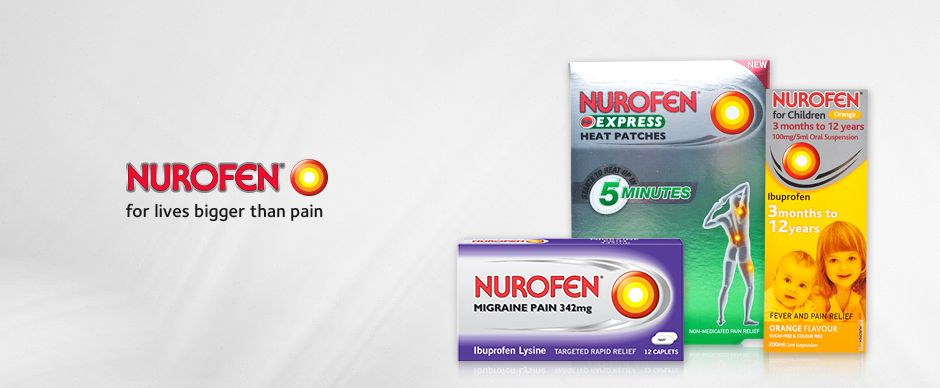
Nurofen For Colds & Flu
Breathe easy once more
Bunged up? Headache? Runny nose? Sore throat? Don't worry, we can help you feel better again. For details on the two cold and flu products, more information on colds and flu, and alternative treatments, take a look below.
We've all suffered from colds and flu, but do you know the difference between them? Or the causes? We offer valuable tips on how to avoid catching a cold or flu and how best to treat them.
What causes colds and flu?
Colds and flu are caused by viruses that infect the upper respiratory tract (nose, throat, ears and sinuses). The peak season for catching a cold is the winter months. But did you know that colds aren't directly triggered by the cold weather? They can actually be caused by your central heating which dries out the moist mucosa in your nose. It's this mucosa that acts as an important defence against invading viruses.
The flu is caused by the influenza virus and thrives during November to February. There are three major types of flu virus: A, B and C.
What's the difference between colds and flu?
A cold normally develops gradually and causes a stuffy or runny nose, sneezing, sore throat, cough, mild fever and tiredness. It usually lasts two to four days.
The flu, however, usually affects the whole body. Symptoms include: a high fever (usually 39°C or above), chills, headaches, intense muscle pains, exhaustion, loss of appetite, coughing, and sometimes a blocked nose and sore throat. It can last a week or more.
Popular ways to treat colds and flu
Most colds don't last long, so you can treat them at home with painkillers (antibiotics are of no use against a cold). Ibuprofen ? the active ingredient in Nurofen has been proven to help lower a temperature. Other ways you can relieve cold and flu symptoms include:
- Using decongestant rubs, vaporisers or inhalers
- Taking zinc and vitamin C supplements
- Drinking hot drinks, like honey and lemon
- Keeping warm
- Resting

